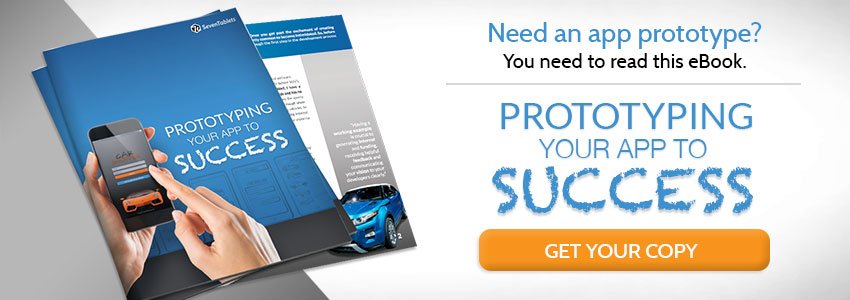Machine learning algorithms have gone a long way toward transforming our digital experience, whether we’re online, using a mobile app, interacting with a piece of desktop software or leveraging the tools within an enterprise app. And while few people really appreciate the machine learning algorithm—or even realize it exists—it’s a remarkable piece of technology that is unique in terms of its adaptation capabilities and overall efficiency. As more and more apps are built each month, an increasing number of developers are leveraging the advantages of machine learning algorithms for mobile apps. But what are these benefits and how do they affect your mobile app, its budget and its overall capabilities?
Using Machine Learning Algorithms to Reduce the Burden on Programmers
Before the days of machine learning, developers were faced with the time-consuming and arduous task of anticipating every conceivable possibility, eventuality or contingency, and then programming the app in a manner that accounted for those variables. This is where machine learning brings a major advantage because a well-crafted algorithm can identify trends, needs or patterns. Then, the algorithm can generate the appropriate coding on an as-needed basis.
For example, let’s say you have a registration form that requires users to pick an item from a drop-down menu. Or, if none of the drop-down menu items are appropriate, users can enter an answer manually. You could program the algorithm to add a new option to the drop-down menu if a certain percentage of users manually enter the same answer. Conversely, if .002% of users are selecting drop-down menu item B, then your algorithm could be designed to automatically remove that item once the criteria are met.
Of course, many developers will break into a cold sweat at the idea of an app that has the ability to self-program. But fear not! Your development team can remain in control by simply programming the machine learning algorithm to suggest changes instead of implementing them automatically. This allows a human to approve and fine-tune the alteration. The end result is a far more efficient and adaptable app that requires fairly minimal human intervention. Your development team will have more time to focus on more profitable activities, thereby improving your bottom line.
Machine Learning Algorithms Allow You to Enhance Your Predictive Analytics Engine
Predictive analytics engines are often driven, in part, by a machine learning algorithm which allows the PA engine to adapt and evolve over time. This is crucial for the efficiency of your predictive analytics interface, particularly when it’s implemented on a large scale.
Let’s say you have an ecommerce app and auction platform that’s comparable to eBay in terms of form, function, scale and popularity. Thousands of items are listed, unlisted, purchased and sold every hour. The sheer volume of data makes it impossible for humans to manually architect a predictive analytics engine that continually offers relevant product or auction recommendations to users. You would need an army of developers to keep pace and update the algorithm to include items that have just been added, removed or sold. And this says nothing of the changes that may be necessary due to fluctuations in user behavior or trends. This is where a machine learning algorithm comes to the rescue!
Machine learning technology allows you to create a platform that automatically adjusts according to user habits, trends, and changes in your data pool. In our example, your data pool would be the database of items for sale, items that have been purchased and items that are currently listed for auction. And the best part? Machine learning can implement these changes in real-time—or as close to real-time as you can reasonably expect to achieve with modern computing power.
Machine Learning Algorithms Improve Efficiency, Productivity and Your Bottom Line
Machine learning has the power to truly transform your app—or any other piece of software, for that matter. This technology has done away with static apps in favor of dynamic, “living” apps that have the ability to adapt and evolve in a matter of minutes. This means your apps are:
- More relevant and agile since you can account for trends as they happen.
- More effective since you’re given the ability to meet users’ needs more effectively.
- More current since you’ll have the power to include new data, products or other information as soon as it becomes available.
- More cost-effective and practical since your developers won’t be tasked with accounting for every conceivable possibility.
- More profitable since machine learning is a key driving force behind profit-driving technologies such as predictive analytics and artificial intelligence.
With such major and potentially game-changing benefits, machine learning algorithms for mobile apps will likely become the standard for many app types in the not-so-distant future. However, not every developer specializes in this cutting-edge technology. Therefore, it’s vital that you trust your project to a team that has experience in all facets of machine learning technology and the related fields of predictive analytics, artificial intelligence, augmented reality, virtual reality and natural language processing. That’s precisely what we do here at 7T, as our developers deal in all areas of emerging technology.
7T works with clients across Texas—including Dallas, Austin and Houston—and beyond. In fact, our clientele is spread throughout the nation. We encourage you to contact our team today to discuss your next development project.









